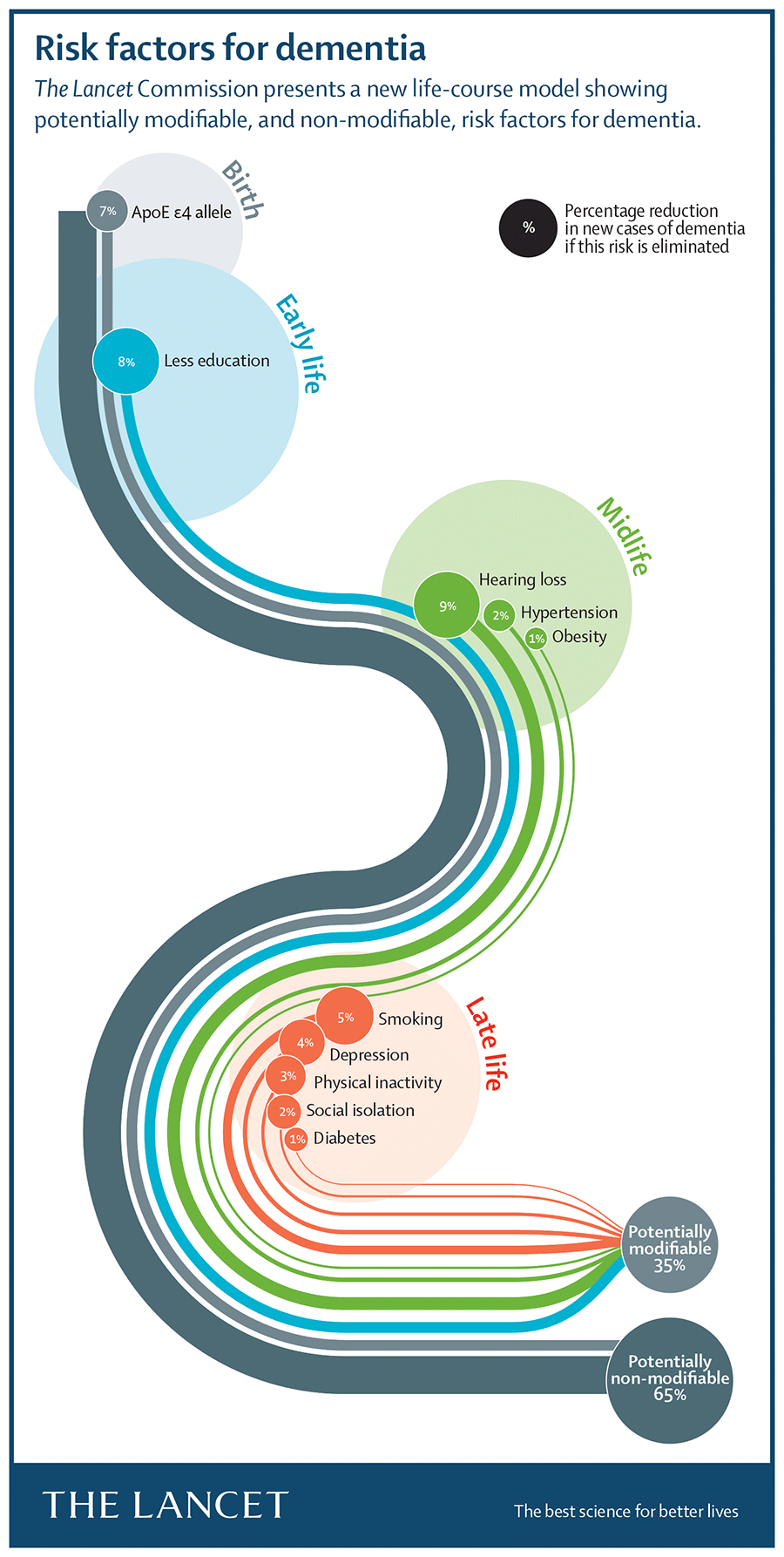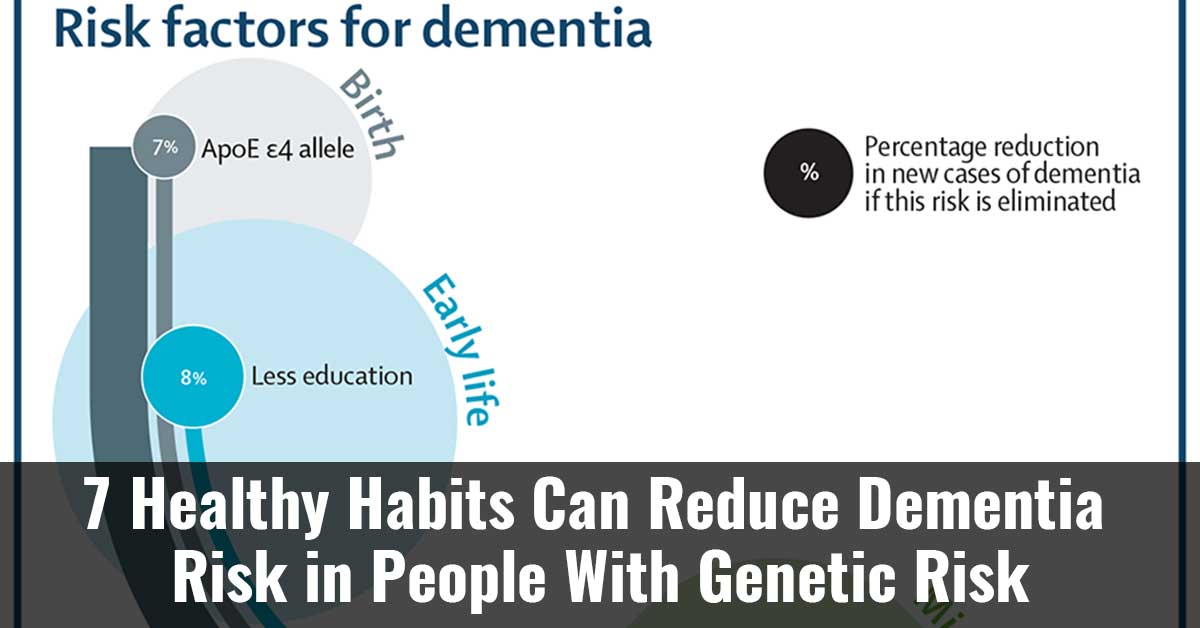According to a study, 7 lifestyle factors and healthy habits could be involved in reducing dementia risk in individuals having the greatest genetic risk.1✅ JOURNAL REFERENCE
DOI: 10.1212/WNL.0000000000200520
The 7 brain and cardiovascular health factors, called the Simple Life 7 endorsed by the American Heart Association, are: reducing blood sugar, managing cholesterol, keeping a healthy blood pressure, not smoking, losing weight, eating better, and being active.
These Simple Life 7 healthy habits have been associated with an overall reduced risk of dementia, but it’s been unclear if the same is applicable to individuals having a high genetic risk. A study has fortunately found that living by this same healthier lifestyle will likely reduce dementia risk even for individuals having the greatest genetic risk.
The study examined 2,738 individuals with African ancestry and 8,823 individuals with European ancestry who were monitored for 30 years. All participants were 54 years old on average when the study started.
Levels of all 7 health factors were reported by the study participants. Total scores ranged between 0 and 14, with the unhealthiest score represented by 0 and the healthiest score represented by 14. Individuals with African ancestry had an average score of 6.6 and individuals with European ancestry had an average score of 8.3.
Genetic risk scores were calculated when the study started making use of genome-wide Alzheimer’s statistics, which have been made use of for studying risk of genetic dementia.
African ancestry individuals were split into 3 groups and European ancestry individuals were split into 5 groups according to genetic risk scores. The greatest genetic risk group included individuals who had a minimum of 1 APOE gene variant copy linked to Alzheimer’s, the APOE e4 variant. 27.9% of the European ancestry individuals had the APOE e4 variant, and 40.4% of the African ancestry individuals had the APOE e4 variant. The group having the lowest risk had the variant that has been linked to reduced dementia risk, the APOE e2 variant
By the time the study ended, 631 African ancestry individuals had developed dementia and 1,603 European ancestry individuals had developed dementia.
European ancestry individuals having the highest lifestyle factor scores had a reduced dementia risk across all 5 genetic risk groups, which included the group having the greatest risk of genetic dementia. There was a 9% reduced dementia risk for every 1-point lifestyle factor score increase. In European ancestry individuals, the intermediate category and the high category were linked to 30% and 43% reduced dementia risk in comparison to the low lifestyle factor score category. In African ancestry individuals, the intermediate category and the high category were linked to a 6% and 17% reduced dementia risk.
In African ancestry individuals, a similar pattern of decline in dementia risk was found across all 3 groups in individuals having higher lifestyle factor scores. The researchers however note that the results were limited by the smaller amount of individuals participating in this group, so more studies are required.

Image Source – thelancet



